
views
Trying Quick Fixes

Take a bathroom break. Raise your hand and ask your teacher if you can use the bathroom. If you don't want to let everyone know that you're not feeling well, you can go over to your teacher's desk and ask them quietly. Then, spend some time resting in the bathroom to see if your stomach settles. If your stomach ache is caused by constipation or diarrhea, try to use the toilet. Sometimes, having a bowel movement can actually make your stomach feel better.

Sip clear liquid to calm your stomach. Drinking carbonated drinks, like soda or seltzer water, could make your stomach ache worse. Instead, drink small sips of water or clear drinks, such as sports drinks or coconut water.Did You Know? If you're also throwing up, it's important to drink fluids so you don't get dehydrated. If drinks aren't allowed in your class, you might need to ask for permission or go to the nurse's office to sip on water. You probably won't feel like eating food, so avoid solid food until your stomach feels back to normal. Make sure that the water and other beverages you sip are not ice-cold. This could make your stomach ache worse.

Suck on peppermint or ginger candy to relieve nausea. If you think your stomach ache was caused by something you ate, try sucking on a peppermint or ginger candy. The peppermint or ginger can relax your stomach muscles and calm your stomach. If you prefer, you could eat a ginger chew instead of suck on a candy. Check with your teacher about sucking on peppermint or ginger if they don't allow food in the classroom.

Ask to lay down in the office for a few minutes. Your stomach ache should go away on its own within a few hours, but if taking a bathroom break, sipping water, or sucking on peppermint doesn't seem to help, you may feel more comfortable if you lie down. If you're not sure how to tell the teacher that you're feeling bad, you could say, "I'm really not feeling good. Could I lay down in the nurse's office for a few minutes?"

Take deep breaths to help calm yourself. Sometimes anxiety can cause a stomach ache. By taking slow, deep breaths you might be able to sooth your stomach. Breathe in through your nose while counting to 4, then hold the breath for 4 seconds, and release the breath to the count of 4. Repeat this 5 to 10 times to help yourself relax. Try to pull the breath down into your belly when you breathe in. This will help you to take in more air with each breath. Relieve painful stomachaches at school. "I woke up with the worst stomachache ever, but my mom said I still had to go to school. I used the tips here, like breathing and relaxing in the bathroom, to help the pain. The advice on handling anxiety spoke to me, too, since stress makes my stomach hurt more. Now I've got a plan for feeling better the next time my stomach acts up." - Sandra S. Soothe belly aches with water and mints. "My stomach started hurting so bad in class I thought I'd throw up. I tried sipping water and sucking on a mint like the article said. After a little while, I felt way less queasy. I'm so glad I read this — now I know what to do when my belly starts aching at school." - Reagan S. End days of stomach pain. "I had nasty stomachaches every day at school last week. Asking the nurse for help and using the preventing tips here finally made them stop. Now, I know how to make the pain go away for good instead of suffering for days. This guide saved me!" - Jessica P. Quickly find anxiety relief. "My nervous stomach pains kept making me miss class. As soon as I tried the breathing exercises from this article, I felt my anxiety and stomach ache fade. Now, I can calm myself and get rid of the pain fast. These tips are lifesavers for anxious kids like me!" - Ellie S. Have a story our readers should hear? Share it with 1 billion+ annual wikiHow users. Tell us your story here.
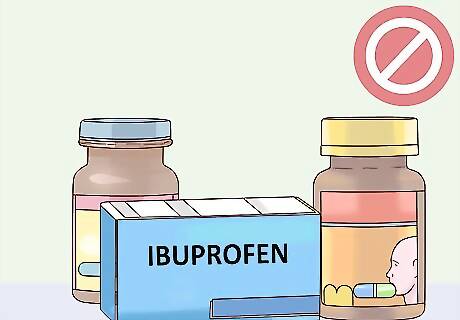
Don't take medicine unless you know why your stomach is hurting. Some pain relievers, such as ibuprofen, could actually make your stomach ache worse, especially if you haven't been able to keep food down. Instead, make yourself as comfortable as possible and the stomach ache should go away within a few hours. If you think you have a fever, ask an adult to take your temperature. They may want to give you a pain reliever, like acetaminophen if your fever is over 102 °F (39 °C).
Asking for Help

Tell a friend that you're not feeling well. Instead of ignoring the pain or trying to handle it on your own, let a friend know that your stomach hurts. They might be able to keep you company if you go to the bathroom or nurse's office. If you end up leaving the classroom, your friend might be able to take notes for you. Sometimes, just telling someone else that you don't feel good can help you manage the pain better.

Let your teacher know that your stomach hurts. You can raise your hand or go over to your teacher and tell them how you're feeling. It's important to let your teacher know that you don't feel well so they don't think you're tired, bored, or not paying attention. They may tell you that you can lay your head on your desk or go see the nurse. Try to let the teacher know how long your stomach has been hurting or if the pain is getting worse. For example, you could say, "My stomach hasn't been feeling good since last class and I feel like I need to lay down."
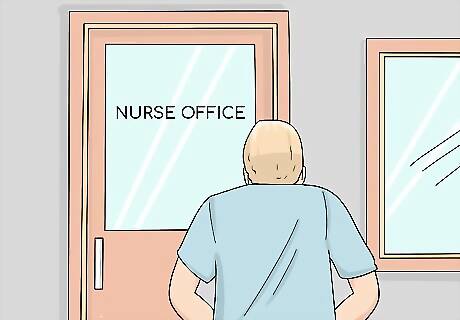
Ask to go to the nurse's office or health center if you want to lie down. If you're still not feeling better after a trip to the bathroom or if you're stomach is feeling worse, go to the school nurse. They'll probably take your temperature, ask how long you've been sick, and might feel your abdomen if you're in a lot of pain.Tip: You can usually rest in the nurse's office until you start feeling better or, if the pain is too much, they'll send you home. If you have cramps or sharp pain in your lower abdomen that doesn't go away, the nurse may be concerned that you have appendicitis.
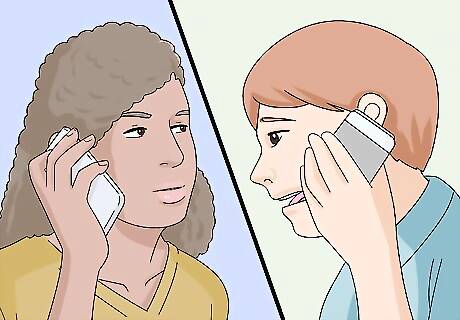
Call a parent or guardian if the pain gets worse or doesn't go away after 2 hours. You can ask to call a parent or guardian if you want to go home or your school nurse might recommend it. You'll probably stay in the nurse's office until someone can come to pick you up. Your parent or guardian should call the doctor if your pain is severe or doesn't get better once you go home, even if it's mild pain that's off and on. If you asked a friend for help, see if they can get any assignments you'll miss.
Preventing Frequent Stomachaches

Wash your hands frequently to prevent catching a virus. Because so many germs can cause stomach aches, it's important to wash your hands with soapy water throughout the day, especially before you eat. Remember to wash your hands after using the bathroom too!
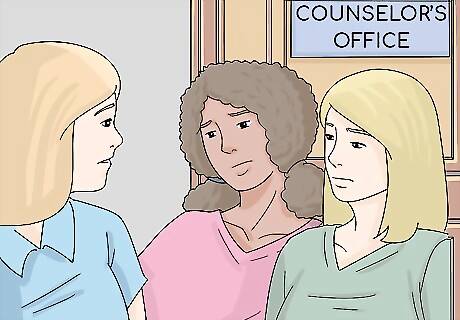
Talk to someone if you feel anxious about school. If you feel overwhelmed by the demands of school or feel like you have no control, your anxiety might be causing the stomach aches. Speak about your worries with someone you trust, like a friend, teacher, or counselor. If you're anxious about school, you might have stomach aches throughout the school week, but feel better during the weekend.
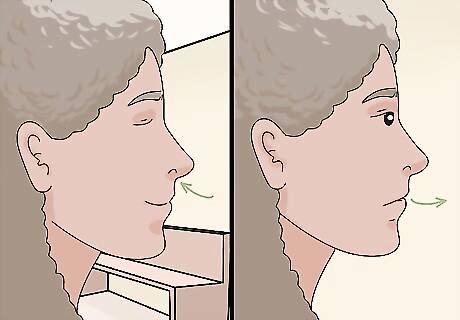
Use relaxation strategies to manage anxiety and pain. You might be able to prevent stomach aches or handle the pain better if you know some strategies for relaxing. Try taking slow, deep breaths while you relax all of the muscles in your body. You could also focus on positive things that cheer you up while you wait for the pain to pass. If you're at home, try listening to calming music, stretching, or going for a run to handle anxiety.
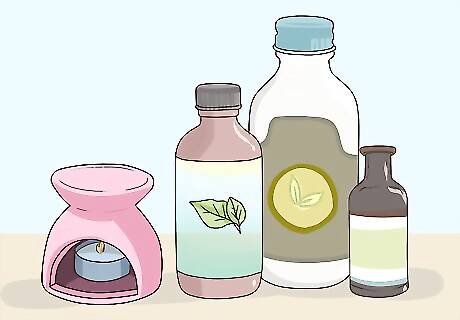
Try using aromatherapy to prevent and manage stomach aches. Aromatherapy can help to keep you calm and this may prevent future stomach aches. Try getting a scent diffuser and use a calming essential oil with it. Some calming scents include: Lavender Fennel Rose Peppermint Cinnamon

Eat a healthy diet full of whole grains, fruits, and vegetables. If you eat a lot of processed foods like fried or fast food, you might become constipated which can cause stomach aches. To keep your digestive tract moving smoothly, drink water throughout the day and eat fresh produce and whole grains.Did You Know? You might get a stomach ache if you're allergic to a specific food. For example, you might get stomach aches if you're allergic to the lactose in dairy products. If you don't know if food has spoiled or not, check the expiration date. If you still can't tell if the food is good, don't take the risk.

Don’t smoke, drink, or consume caffeinated beverages. Smoking, drinking, and consuming too much caffeine may lead to stomach aches. If you have been suffering from frequent stomach aches and you smoke, drink alcohol, or drink caffeinated beverages, then that might be part of the problem. Stop smoking and drinking right away. You can also ask a trustworthy adult for help if you are having trouble stopping. Try to avoid caffeine entirely, such as by sticking to caffeine-free soda and decaf coffee or herbal tea.












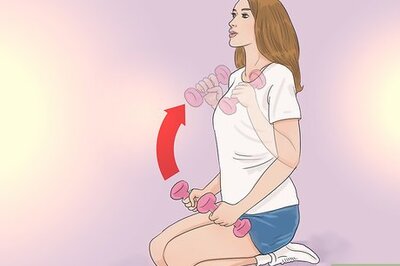







Comments
0 comment